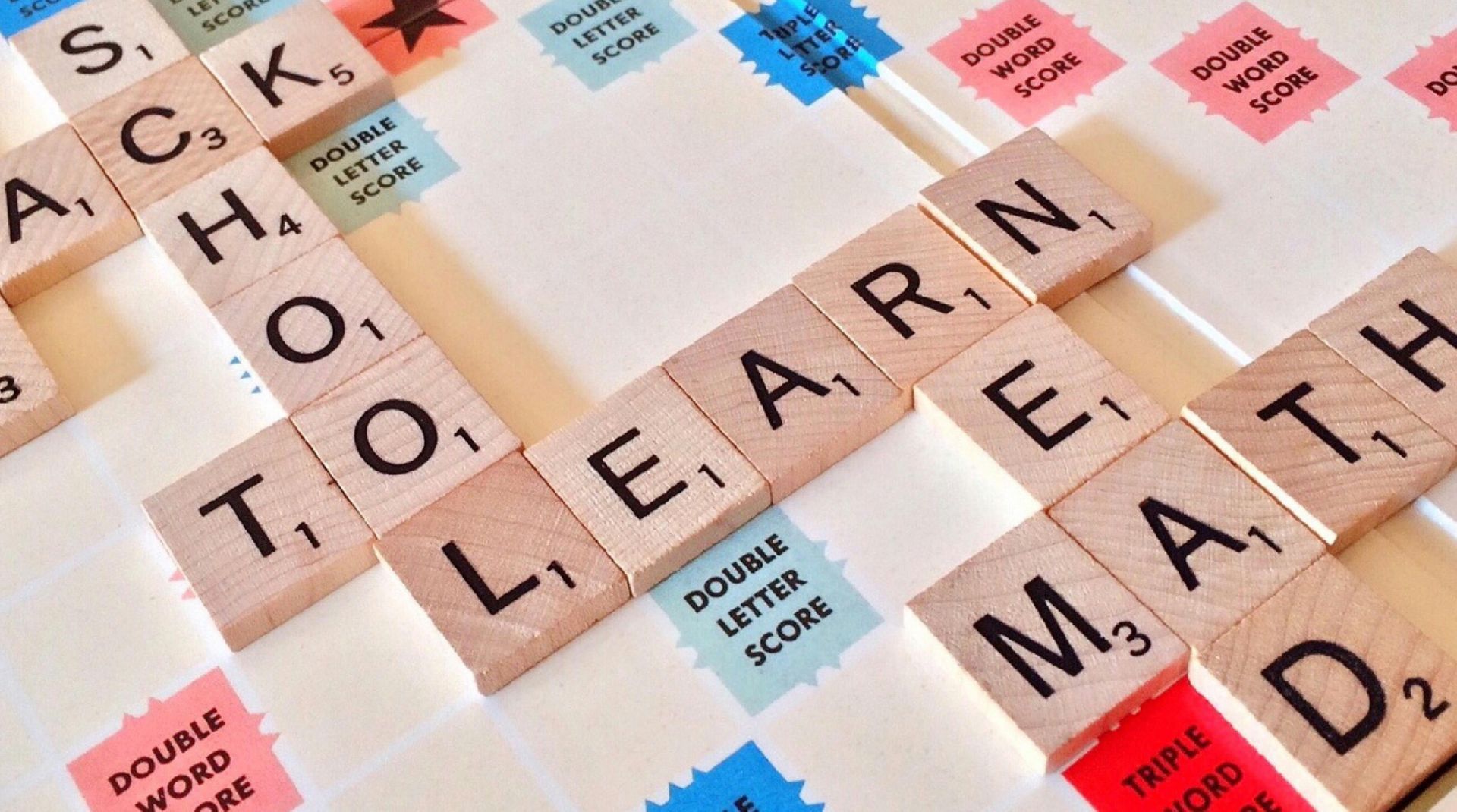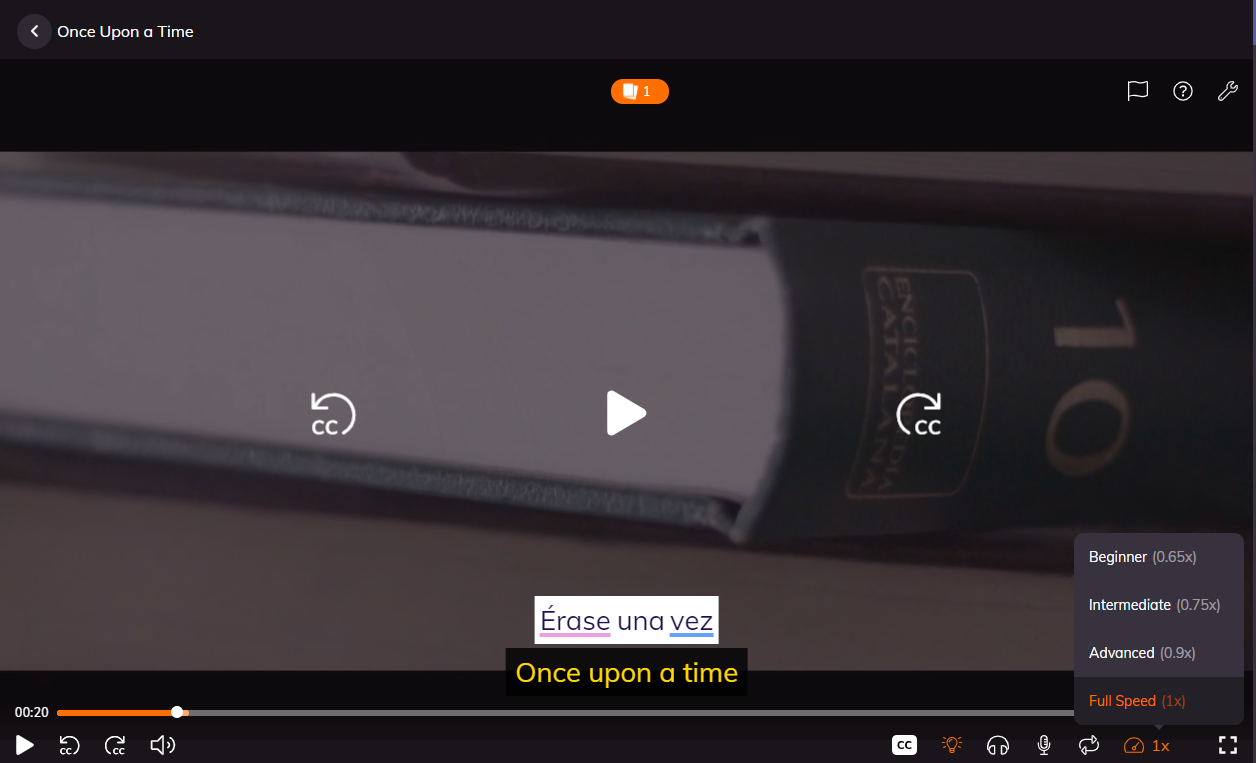How to learn a language | Tips, Tricks, and Resources
written by: Krystof-Sandor Harfst
Table of Content
Learning a new language can be a challenging but rewarding experience. Whether you want to travel, do business, or simply expand your horizons, having the ability to speak another language opens up new opportunities and perspectives. In this article, we'll outline a holistic approach to learning a language, including tips on setting goals, studying smart, using the language in everyday life, seeking out real-life practice, and having fun.

Setting goals for language learning
The first step in learning a new language is to set clear, achievable goals. Here's what you need to know:
How do you get Motivation
Before you start learning a language, it's important to understand why you want to do so. Are you motivated by the challenge of learning something new, or do you have a specific goal in mind, such as being able to communicate with family members who speak the language? Understanding your motivation can help you stay focused and motivated throughout the learning process.
Keep It Relevant
Once you've identified your motivation, it's important to make sure your goals are relevant. For example, if you're learning a language for business purposes, you'll want to focus on the vocabulary and phrases you'll need in a professional setting. If you're learning a language for travel, you'll want to focus on the phrases and vocabulary you'll need to get around and communicate with locals.
Create SMART goals
SMART goals are Specific, Measurable, Achievable, Relevant, and Time-bound. When setting your language-learning goals, make sure they meet these criteria. For example, instead of simply saying "I want to learn Spanish," a SMART goal would be "I want to be able to have basic conversations in Spanish with native speakers by the end of the year."
What to do
To help you reach your language-learning goals, you can create a study plan and stick to it. This could involve setting aside a specific time each day or week to study and practice, as well as incorporating other activities, such as watching movies or TV shows in the language or speaking with native speakers, into your routine.
Remind yourself why you are learning
Finally, it's important to remind yourself why you're learning the language. Whether it's to communicate with family, travel to new countries, or simply to challenge yourself, having a clear reason can help you stay motivated and focused.

Study smart
Now that you have your goals in mind, it's time to start studying. Here are some tips to help you learn more effectively:
Learn the right words
When you're learning a new language, it's important to start by learning the most common words and phrases. This will help you start communicating more quickly and effectively.
Learn vocabulary in context
Learning vocabulary in context, such as in sentences or through conversation, will help you remember the words and phrases more easily and effectively.
Focus on exactly what you want to learn
When you're studying, focus on the specific words and phrases you want to learn, rather than trying to learn everything at once. This will help you make more rapid progress and avoid feeling overwhelmed.
Learn cognates: your friend in every single language
Cognates are words in different languages that have similar meanings and often a similar spelling. For example, the Spanish word "actual" is a cognate of the English word "actual." Learning cognates can make learning a new language easier and faster.
Expand your vocabulary with mnemonics
Mnemonics are memory aids that can help you remember new vocabulary words more easily. There are many different mnemonic techniques you can use, such as creating a visual image, using a rhyme, or associating the new word with something you already know. For example, to remember the Spanish word for "pencil," "lápiz," you might imagine a pencil in the shape of a lasso, which is similar to the sound of the Spanish word.
Need to Know
When learning a new language, it's important to focus on the most useful words and phrases first. This will help you start speaking and understanding the language more quickly and easily. Start by learning words and phrases related to everyday activities, such as asking for directions, ordering food, or making introductions. Then, as you gain confidence and improve your skills, you can expand your vocabulary to include more complex words and grammar structures.
Seek Out Online Resources
The internet is a treasure trove of language learning resources, including online courses, vocabulary lists, grammar explanations, and conversation practice forums. You can also find online language exchange programs that connect you with native speakers for conversation practice, and language learning apps that offer interactive exercises, quizzes, and games to help you build your skills.
Do Some Revision of Your Native Language
While you are learning a new language, it can be helpful to do some revision of your native language. This can help you understand the grammar and sentence structures of the target language more easily, and avoid making common mistakes.
Don’t Underestimate the Importance of Translation
Translation can be a valuable tool when learning a new language, but it should not be relied upon too heavily. Instead, try to understand the meaning of new words and phrases in context, and use translation only as a last resort. This will help you build a deeper understanding of the language, and become more fluent more quickly.
Beware of Fluency
Fluency in a language is not the same as mastery, and it can be tempting to focus on fluency at the expense of accuracy. While being able to speak a language fluently is a great goal, it's important to remember that accuracy is just as important. Focus on building a solid foundation of vocabulary, grammar, and pronunciation, and work on becoming accurate before worrying about fluency.
Speak from Day One
The best way to improve your speaking skills is to start speaking the language as soon as possible. Even if you feel shy or intimidated, don't be afraid to try speaking the language with native speakers, or with other language learners. The more you practice speaking, the more confident and fluent you will become, and the more likely you are to retain what you have learned. So, speak from day one and enjoy the process!

Start using the language all day, every day
One of the best ways to learn a new language is to start using it as much as possible. Immerse yourself in the language by using it in your daily life, and you'll pick it up much faster. Here are some ways to start using the language every day:
Make language learning a daily habit
Set aside time each day to practice speaking, reading, and writing in the language you are learning. The more you practice, the better you'll become.
Interact in your language daily without traveling
There are many ways to interact with native speakers of the language you're learning, even if you can't travel to a country where it's spoken. You can join online language learning groups, chat with native speakers on social media, or find a language exchange partner.
Skype today for daily spoken practice
Skype is a great tool for language practice, as it allows you to have real-life conversations with native speakers from anywhere in the world. You can find language exchange partners on websites such as Tandem or MyLanguageExchange.
Watch a Movie
Watching movies in the language you're learning can help you improve your listening and comprehension skills. Look for movies with English subtitles if you're just starting out, and gradually move on to movies without subtitles as you improve.
Listen to the Radio
Listening to the radio in the language you're learning is a great way to improve your listening skills. You can find online radio stations that play music in the language you're learning, or you can download podcasts and listen to them on the go.
Talk To Yourself
Practice speaking the language out loud, even if you're the only one who can hear you. This will help you get used to the sound of the language and improve your pronunciation
Act Like A Child
Children are natural language learners, and you can learn from their example. Be curious and ask questions, play games, and have fun with the language.
Listen
Pay attention to the language around you and try to pick up new words and phrases. Listen to conversations in the language, whether in person or online, and try to understand what's being said.
Watch Others Talk
Watching videos of people speaking the language you're learning can help you see how it's used in real-life situations. This can give you a better understanding of the rhythm and flow of the language.
Learn about the culture
Learning about the culture of the people who speak the language you're learning can give you a deeper understanding of the language and its context. Read books, watch movies, and listen to music in the language, and you'll get a better understanding of how the language is used in everyday life.

Seek out real-life practice
Dive In
The best way to learn a language is to dive in and start using it. Find opportunities to use the language in real-life situations, such as ordering food at a restaurant, shopping, or asking for directions.
Leave Your Comfort Zone
Don't be afraid to make mistakes. Speaking a language is like learning any new skill – it takes time and practice to get better. Try to use the language in different situations, even if it means stepping outside your comfort zone.
Find A Partner
Find someone who is also learning the language, or someone who is fluent in the language you are learning, and practice speaking with them regularly. Having a language partner can be incredibly helpful in improving your speaking and comprehension skills, as well as providing a source of motivation and accountability. You can also learn from each other, exchange cultural information, and have fun while learning.
Make New Friends
Making new friends who are native speakers of the language you are learning is another excellent way to practice and improve your skills. You can also learn about the culture, customs, and way of life of the people who speak the language. Joining language groups or language exchanges, taking language classes, or participating in online language forums and communities can help you meet new people who are also interested in learning the language.
4.5 Pretend You’re at a Restaurant
Visualize yourself in different real-life situations where you would use the language, such as ordering food at a restaurant, asking for directions, or shopping for groceries. This type of mental simulation can help you feel more confident and prepared when you encounter similar situations in real life.
Go Abroad!
One of the best ways to immerse yourself in a new language is by traveling to a country where it is spoken. Living in a place where the language is spoken on a daily basis will give you countless opportunities to listen, speak, and practice the language. You can also take language classes, join cultural activities, and make new friends while exploring the culture and the country.
Go to where the language is spoken
Going to a country where the language is spoken is a great way to immerse yourself in the language and practice speaking with native speakers. You can also take language classes, join cultural activities, and make new friends while exploring the culture and the country.
Make language learning a daily habit
Making language learning a daily habit is essential for improvement. Whether you are at home or abroad, make sure to set aside time each day for language learning and practice. This can include reading, listening, speaking, writing, and engaging in other activities that allow you to use the language.

Try Online Courses
Online courses are a convenient and flexible way to learn a new language. You can find a wide variety of courses that cater to different levels and learning styles. Many online courses offer interactive lessons, exercises, and quizzes, as well as opportunities to connect with other language learners and native speakers. Consider taking a comprehensive online course that covers all aspects of the language, such as grammar, vocabulary, pronunciation, and speaking skills.

Test yourself
Testing yourself regularly is a great way to track your progress and identify areas that need improvement. There are many resources available for testing your language skills, such as online quizzes, standardized tests, and language proficiency exams. Consider taking a test to determine your current level, and set goals for improvement.

Have fun
Learning a new language should be a fun and enjoyable experience. Make sure to incorporate activities into your language learning journey that you find enjoyable, such as reading books, watching movies, listening to music, and engaging in other cultural activities. This will help you stay motivated and make the experience more enjoyable.
Have Fun With It
Make learning a new language an enjoyable experience by incorporating activities that you find fun into your language learning journey. This can include reading books, watching movies, listening to music, and engaging in other cultural activities.
Read for pleasure
Reading books, newspapers, magazines, and other materials in the language you are learning is a great way to practice your reading skills and expand your vocabulary. Try to find materials that more you enjoy what you're reading, the more likely you are to stick with it and make progress. You can also find books that are specifically designed for language learners, with parallel texts in both the target language and your native language. This can help you understand new vocabulary and grammar structures in context, and also make reading more accessible when you're first starting out. Additionally, you can try reading children's books or comics in the target language, as these often use simple language and visual aids to help you understand what's going on.
If you don't have access to books in the target language, or if you prefer to read digitally, you can use websites or apps that offer free or low-cost e-books in the target language. There are also websites and apps that offer audiobooks and podcasts in the target language, which can be a great way to practice listening skills and improve your pronunciation.
Reading is a great way to immerse yourself in the language and learn new vocabulary and grammar structures in context. So, make reading a regular part of your language learning routine and enjoy the journey!

Resources
Links & Books
There are countless resources available online for language learning, including free and paid resources. Websites like Duolingo, Babbel, and Rosetta Stone are great places to start, as they offer interactive courses that are easy to follow. You can also find e-books and audio courses on websites like Amazon and Audible.
Awesome Language Learning Programs
In addition to online resources, there are also many language learning programs available. Some of the most popular language learning programs include Berlitz, Pimsleur, and Rosetta Stone. These programs offer comprehensive language learning experiences, with a focus on speaking, listening, reading, and writing.
Best Apps for Language Learning
Language learning apps are a convenient and effective way to learn a new language. Some of the best language learning apps include Duolingo, Babbel, and Rosetta Stone. These apps offer interactive lessons, flashcards, and other learning tools, making it easy to learn a new language on the go. Other popular language learning apps include Anki, Memrise, and Quizlet.
Movie Platform
Watching movies in the target language is a fun and engaging way to practice your listening skills and immerse yourself in the culture. There are several movie platforms available that offer films in the target language with optional subtitles in your native language. You can start with easy-to-follow films like comedies or children's movies, and gradually move on to more challenging films as your skills improve.
You can also try watching movies or TV shows with subtitles in the target language, which can help you improve your reading skills and get a better understanding of how the language works. This is a great way to learn new vocabulary, grammar, and idioms in context, and to see how the language is used in real-life situations.
Tools
There are many tools available that can help you learn a language, including language learning apps, online courses, and language learning software. When choosing a tool, consider your goals, learning style, and budget, and look for tools that offer interactive lessons, interactive exercises, and opportunities to practice speaking and listening skills.
Language learning apps are a great way to practice vocabulary, grammar, and pronunciation on-the-go, and they offer a range of exercises, games, and quizzes to help you stay motivated. Some apps also offer live tutors, which can be a great way to get personalized feedback and practice speaking and listening skills in real-time.
Online courses and language learning software can also be a great way to learn a language, as they offer structured lessons and interactive exercises to help you build your skills. Some courses and software programs also offer video lessons and interactive dialogue exercises, which can be a great way to practice speaking and listening skills in a simulated real-life environment.
In conclusion, there are many ways to learn a language, and the best approach depends on your goals, learning style, and budget. Whether you prefer self-study, online courses, or tutors, there are many tools and resources available to help you achieve your language learning goals. So, choose the approach that works best for you, and enjoy the journey!
Share this article!






